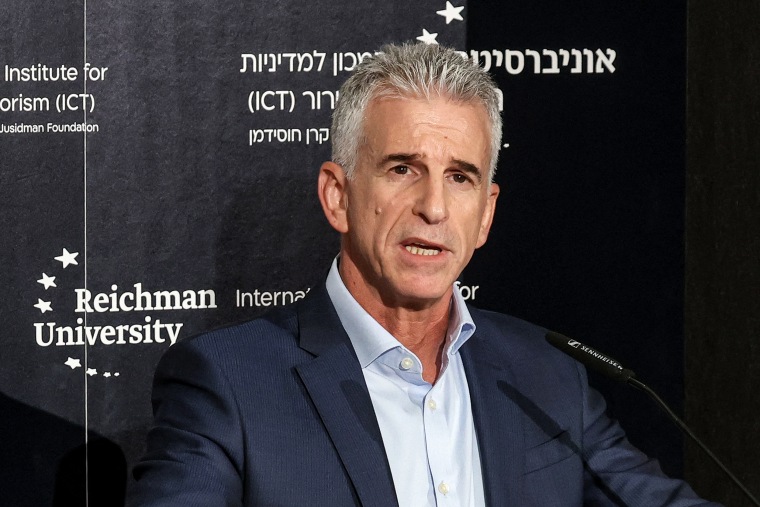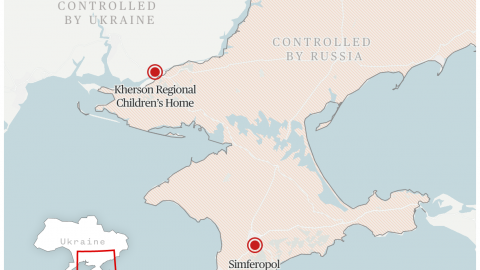Reports that Israel’s wartime unity government rejected a proposal from the country’s spy chief that he fly to Qatar and resume talks to release hostages sparked outrage from the families of the captives.
On Wednesday, Israel’s Channel 13 reported that David Barnea, the head of Mossad, offered to travel to Qatar to initiate new negotiations to free the remaining 135 hostages held by Hamas in Gaza. Channel 13, citing an unnamed diplomatic official, reported that the Cabinet decided it was not the right time to send Barnea and that “he is not heading to Qatar.”
A senior Israeli government official denied the report and said that Barnea’s plan had not been blocked. The office of Prime Minister Benjamin Netanyahu declined to comment.
The Hostages and Missing Family Forum, which represents the families of those kidnapped by Hamas, issued a statement saying they were “shocked” by the report.
“The feeling is that every evening a Russian roulette of murdering hostages in Hamas captivity takes place,” the families’ statement said. “We are fed up with the indifference and deadlock.”
Freed hostages have warned that the remaining captives might die under the harsh conditions if they are not immediately freed. Israel believes 20 hostages have already died in captivity.
The war Cabinet is made up of five senior Israeli officials including Netanyahu; Yoav Gallant, a member of Netanyahu’s party who is serving as defense minister; Benny Gantz, one of Netanyahu’s chief political rivals; Gadi Eisenkot, a centrist politician; and Ron Dermer, one of Netanyahu’s closest advisers.

Israeli author and commentator Nadav Eyal said that the members of the war Cabinet, despite their different political backgrounds, agreed that now was not the time to restart hostages negotiations.
“You have Netanyahu and Gallant on one side, and they are more strict towards Hamas in terms of negotiating for hostages,” Eyal told NBC News. “And you have Gantz and Eisenkot on the other side, and they are more willing to be flexible in order to get as many people as they can out.”
Eyal added that the Cabinet supported resuming hostage negotiations in the future. “It’s a consensus that Israel will attempt to resume these negotiations.”
For weeks, many of the hostages’ families have accused Israeli government officials of not prioritizing the release of their loved ones.
The families said that their request to meet with Netanyahu and Gallant has not been answered. They demanded an update on the status of the government’s plan to get their family members home.
The first round of delicate hostage negotiations took weeks to come to fruition and involved U.S. President Joe Biden, Netanyahu, and Qatari and Egyptian officials. It yielded a seven-day pause in fighting, and Hamas released more than 100 hostages, mostly women and children, including foreigners.
But after a week of hostages being released in small groups daily, the U.S.-designated terror organization said it did not have custody over all of the hostages. Israeli security officials contend that if Hamas wanted to find the hostages in Gaza, it could.
Hamas said this week it is open to negotiations over how to end the war. But it is unclear if Hamas has the capability to negotiate via its intermediary Qatar given the Israeli offensive, which limits its ability to communicate with the outside world.
Israeli officials say their war aim remains the same: to free all the hostages and to destroy and dismantle Hamas’ military capability.
For the families of the remaining hostages who have lived through two months of agony, every day that goes by is excruciating.








Recent Comments